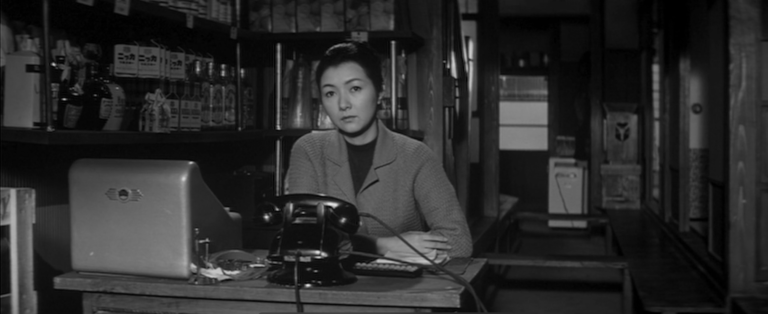The way Herzog opens this film is unquestionably an instant hallmark of near-celestial film-making. The mist is wafting across the unfathomably high mountains of the Andes, the men trickling down and up the hill like ants on a mound, and Popol Vuh’s spectral score ladled across the 35 mm reel in portions. You’re immediately suspended into Herzog’s universe wherein Nature is insurmountable, and Man is an ant who foolishly dreams of its conquest. It’s a stroke of film-making genius that has immortalized his film, himself, and a sensibility that has pervaded all great expeditionary films that have followed.
Perhaps, with my 21st-century film viewer’s mindset, the way Herzog tackles his landscape might not seem a refreshing break from the stodgy sets of expeditionary films that preceded him. As soon as I got back home, I read a bit more about the film’s reception over the years. I saw familiar names peppered all over – Coppola, Scorsese, and surprisingly, Santosh Sivan as well. Memory assists me with images of Apocalypse Now. I could see the vestiges of Herzog’s languid pans and trucks as Willard and crew trundle towards Kurtz (Brando too, perhaps, might have taken a leaf out of Kinski’s quietly delirious performance as Aguirre). Silence follows, and I can see traces of awe-struck pauses for Japan’s arduous terrain – although Scorsese has stamped his own mark sufficiently to be more removed from Herzog. And lastly, the cinematized ashokavanam that Santosh Sivan created for Mani Ratnam which too showed the proud tribals drifting solemnly on their rivers in harmony with the forest. Aguirre’s impact as a film has been nothing short of tremendous when viewed in hindsight.
Desire has had many manifestations through the course of our collective existence – but none stronger than the sole desire to subjugate nature. It’s almost equivalent to a child prematurely biting an umbilical cord, not realizing the importance of that link to itself. And what better to underscore this folly than the conquest of El Dorado, the Incan fable that deterred the Spanish’s depredation of a land they didn’t understand. Rafts are swallowed whole, hunger has no reprieve, and yet, the Spanish kingdom is renounced halfway across the world to make way for the new messianic saviour of the impoverished lot – a King too fat, who in those remote circumstances, still doesn’t fail to bungle his modest responsibilities. Through all the mutiny and madness, the only thing that grows is Aguirre’s desire. Kinski is no stranger to eccentricity, but this is more surreal because his pauses are timed to perfection. When he proclaims himself as the Wrath of God, he manages to convince you that though he treads the Peruvian ground, he has himself fixated as the ruler of a realm seldom seen on earth. Herzog mentioned that the cast was already frayed due to severe budget constraints they had while on spot, so Kinski’s eccentrics foil perfectly with those of his co-actors, whose desperation is palpable.
Personally, what I find even more astonishing, is Herzog’s perseverance in the tone of the film. The production hit snag after snag, and he had to write in scenes because the river flooded unexpectedly. Despite this, Aguirre travels at a pace where it tries to remove any fleck of judgment or rush brought on by the onset of production strains. Even as the film nears an end, the same languid detachment to affairs is held steadfast. El Dorado is still far away from the hands of men; every man aboard the raft has bitten into this dawning reality, except Aguirre.
It’s not hard to discern that Aguirre’s desire is universal, and over the last five hundred years, it has largely spread from the heartlands of Europe, bearing gunpowder and goodwill, to other lands that lived in a balance with their environments. In India, the mahouts and the snake-charmers were seen as either amusements or obstacles by the British, without understanding millennia of lived experiences that underpinned the relationship people had with Nature. In Gabriel Garcia Marquez’s Cien Anos de Solidad, the rummaging Colonel curses his family because they invited a gringo to eat some bananas. The humdrum of the town is thrown off-kilter, and tranquillity seems a luxury. This bottomless appetite for ‘more’ has frenzied many townships wherever it has paid a visit, but many of those bonds with nature still survive in those countries. Herzog manages to steal that into his film – a native of the land blows through his windpipe merrily. But when we observe him without it, he seems as if he’s had his soul snatched. These little nuances of Herzog help weave into one frame Aguirre’s unfazed brutality – for him, both the windpipe and the man are temporary amusements on his road to untold riches.
Kinski is the film’s anchor, and he is mightily impressive in his ability to make Aguirre toe that line between delirium and ambition. On set, director and actor, Herzog and Kinski, had much friction, to the point where Herzog had to use another actor to dub Aguirre because Kinski shot off in a rage at the end of their already fraught relationship. But that madness quotient is what defines an emperor who peeks over the empty valley of glory. You don’t need to expose certain situations as a filmmaker dealing with this subject because the eyes of this man should convey just enough to the audience. Certain actors are made from a different cloth, and even if they don’t serve all purposes, they are unparalleled when they rise to the demands of a certain bandwidth of emotion.
But for everything surrounding this anchor, Herzog has a removed amusement. The inquisition and its religious claque aren’t spared. When a poor native and his wife are captured, the first thing the priest aboard asks the translator is to see if these unenlightened beings have heard the word of their ‘God’. When he places the Bible in the native’s hands, the first thing he does is press it against his ear. Heresy shan’t be stomached, and he is swiftly dealt with by the guards. Within this entire exchange, the contrast between these worlds shines because of how apathetically the scene is staged. Herzog intercuts between the priest, with the zealous glint in his eyes, and the Indian, who presents a look of befuddlement. For him, the proselytizers symbolize man’s near-comical desire to subjugate the vastness of nature. You can’t help but smile at how the contrast shows the real scope of this folly.
However, there’s a real balance that must be upheld, else you’d run the risk of making these men seem like caricatures. They did go to horrific extents to do what they intended to do, and Herzog doesn’t dilute that. We see them storming a village and pillaging it without concern. They order a black man to lead the offensive because it’s been rumoured that the natives are frightened by them. Their grotesqueness, too, should be shown unreservedly. This is where the director needs to withhold and administer his judgment on the events as he sees fit to avoid the whole affair being diluted into a tragi-comedy.
Aguirre is amongst cinema’s greatest examinations of imperial desire. Its advent has also spurred many other films to juxtapose man and nature more sincerely through the medium. The greatest credit to this achievement is Herzog himself; he straddled the folly of conquest, seen through hindsight, and the promise of power driving it without ever dosing too much of either. It’s a prescription to oneself if one ever feels intoxicated by the power and promise that can come their way.





